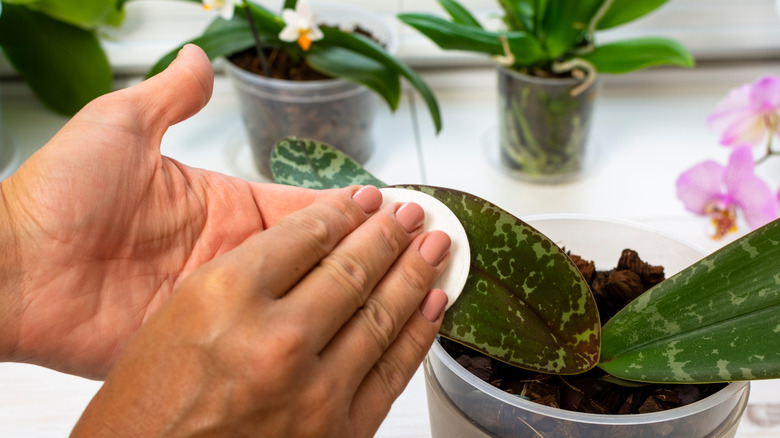Undoubtedly one of the most popular and prolific flowers, orchids can be found in many yards and homes. You can rarely go wrong when it comes to growing orchids to design your home or garden because they come in so many different species – over 25,000 to be exact. Additionally, orchids can take up to seven years to produce flowers after germinating, which is a major reason to take great care of them. That’s why having them overrun by pests can be troubling to even the most experienced gardener. Aphids, scales, mites, and mealybugs are all known for being pests that feed on orchid parts, particularly leaves and buds, by sucking sap. Pests can ruin your entire orchid collection if you stand by and let them. But rubbing alcohol can help get rid of them.
Orchid pests usually gather and hide under old, large leaves while they suck the life out of the plant. If you notice that the leaves of your orchid are turning yellow or appear stunted or droopy, it’s a sign that you may be dealing with these pests. Aphids and scales produce sugary honeydew which rests on the leaves and encourages not only the presence of ants who find it tasty but also black sooty mold that gets stuck to the leaves. The best way to tackle orchid pests without using hard chemicals is by driving them away with rubbing alcohol.
Rubbing alcohol dries out the pests’ bodies

Isopropyl alcohol may be harmless to us human beings, but it works wonders when it comes to naturally repelling bugs from your precious orchids. This is because aphids, scales, and other soft-bodied pests have protective waxy coverings around their bodies instead of a hard exoskeleton. Rubbing alcohol removes the waxy layer, drying out their bodies and killing them.
To drive away pests, swipe a bottle of 70% isopropyl alcohol and cotton balls or rounds from your medicine cabinet. Saturate the cotton and then wipe the leaves of your plant with it. Make sure you don’t use other types of alcohol, such as ethanol, because they are too strong and can damage your plant leaves. Rubbing alcohol is innocuous enough for your plant while combating those unwanted pests. If you find bugs hidden underneath leaves, remove the bugs and wipe the leaf with alcohol. Because pest eggs aren’t affected by alcohol, you will likely have to wait for the larvae to hatch before hitting them with it. Repeat this process several times until the pests are gone.
One thing about rubbing alcohol is that it evaporates rapidly and leaves a cooling sensation behind. This can be detrimental to your plant and cause necrosis. If the weather is chilly or windy, consider wiping off excess alcohol from the leaves as opposed to letting it just sit there and evaporate on its own.

